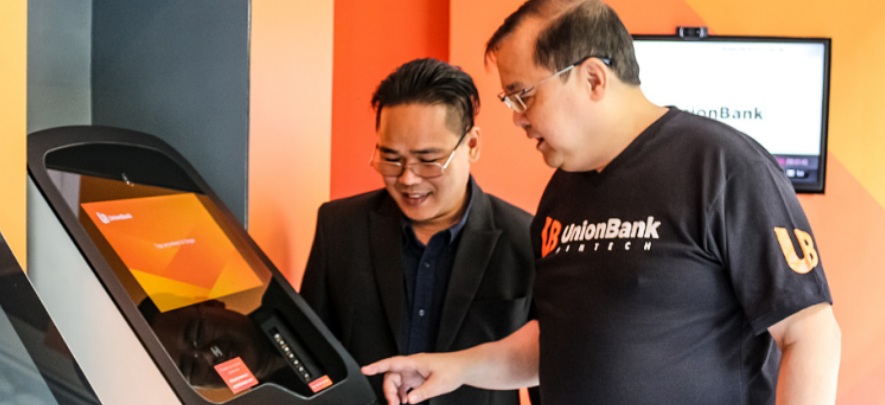UnionBank CEO tips coronavirus to end cash, accelerate bank's digital plans

Digital & Technology
273 week ago — 7 min read
That the west was unprepared for coronavirus hardly needs stating. Pandemics emerge from China every few decades and, in a world where more people live in big cities, the time between outbreaks is only likely to shorten.
But not everyone in Asia was taken unaware. In Taiwan the number of cases counts in the dozens rather than thousands due to a willingness to act early, in December, sharing information and using big data to analyze the spread of COVID-19.
Some banks were also quick to act. When Euromoney talks to Edwin Bautista, president and chief executive of UnionBank of the Philippines – the country’s ninth-largest lender by assets but by far its most digitally advanced – talk quickly turns to speed off the blocks.
“We began monitoring COVID-19 starting in January when the epicenter was then in Wuhan,” he says. “As a result, we activated our business continuity plan.” It opened several offsite “command-and-control systems for our digital systems” and ordered all non-frontline staff to work from home. This was achieved, he adds: “Even before enhanced quarantine was imposed by the Philippine government.”
Has it worked? He thinks so. “The preparations have been effective thus far and have enabled me, my chief technology officer [Henry Aguda] and our management committee to pretty much run the bank at this very challenging time away from our desks.” Bautista notes that 95% of branches remain open, despite 75% of staff working remotely.
Also read: UnionBank boosting digital financial inclusivity
That dovetails with the bank’s digital focus. When we last met Bautista his bank had just been awarded Euromoney’s best bank transformation award for 2018. He pointed to plans to open dozens of digital-led branches, to be a trailblazer in artificial intelligence and to co-create a blockchain-based interbank switch that integrated rural lenders into the national clearing system.
Coronavirus has only accelerated this online push. Bautista says a “record number” of existing customers enrolled for online banking in March (although he won’t give the actual number). The trigger seems to have been the government’s decision to lock down the country’s capital, Manila, in mid-March, emptying streets and stores.
Certainly, this pandemic... amplifies the need for all banks to go digital now - Edwin Bautista, UnionBank
UnionBank also opened 7,000 new accounts “100% digitally” in March, he says, with 20,000 customers downloading its digital app the same month. The number of people logging on to its website doubled month on month in March to 1.1 million. In the last week of March, the board sat for its first fully digital meeting, with members dialing in from homes and offices. Lower down the pyramid, staffers log in to Microsoft Teams to take part in meetings and briefings.
Bautista says the COVID-19 outbreak has accelerated plans to make the bank “more agile” and “disruption proof”. He believes the first global crisis of the 2020s vindicated the: “Decision to embark on our digital transformation journey four years ago, [in order to] future proof the bank.”
Human side
UnionBank has also shown its human side as it looks to help staff and customers hit by the outbreak. Bautista points to the decision to pay salaries at the start of March instead of the end and to hand staffers their mid-year bonuses now “to boost their cash flow during the crisis period”. He adds: “Even our outsourced service providers were advance-paid, despite their limited servicing period.”
As long as the official quarantine period lasts, loan repayments on credit cards, mortgages and vehicles will be extended by 30 days, he adds. Fees on InstaPay, the local banking industry’s online funds payments platform for individuals and small businesses, have been waived. UnionBank continues to extend loans to smaller enterprises through its fintech unit, UBX, and to disburse salaries to public-sector school teachers, many in rural areas, via its Loan Ranger digital processing platform.
See offer: Secure your funding needs here
Will coronavirus change banking in the Philippines and beyond?
“Certainly, this pandemic... amplifies the need for all banks to go digital now,” he replies. It has become obvious that bricks and mortar has its limitations, especially when staff are struggling to get to work. “In terms of consumer behaviour, COVID-19 has forced more Filipinos to do more online banking,” adds Bautista.
If there is any long-term good from this pandemic, [it is that] most of the 70% of [the population still unbanked] will no longer be intimidated or overwhelmed by phone or online banking. The crisis will fast track the shift towards digital.
Also read: How can SMEs adopt digital transformation?
Bautista also nods to another mooted possibility – the beginning of the end of hard cash, particularly if the central bank is hampered in its ability to deliver notes and coins to banks and ATMs in a country with more than 2,000 inhabited islands.
“One key realization here is that the longer the disruption, the more tenuous the traditional cash supply chain becomes,” he says. “Thus, I expect that banks will be more open to testing, developing and deploying digital cash and currencies, QR codes and maybe even cryptocurrencies and digital tokens.”
This, he adds, is likely to benefit lenders like his, which invested early and heavily in digital. “If there is any long-term good from this pandemic, [it is that] most of the 70% of [the population still unbanked] will no longer be intimidated or overwhelmed by phone or online banking. The crisis will fast track the shift towards digital.
“This represents a tremendous new opportunity for banking,” he adds. “For UnionBank this could be the tipping point where we will be able to capitalize on the digital infrastructure that we already have in place to offer more banking services to more people, more cost-effectively.”
Article source: Euromoney
Posted by
UnionBank PublicationWe are a team of professionals providing relevant content to startups, micro, small and medium enterprises.
View UnionBank 's profile
Most read this week













Comments
Share this content
Please login or Register to join the discussion